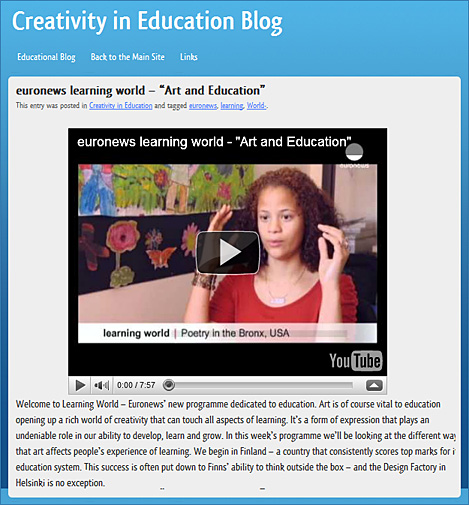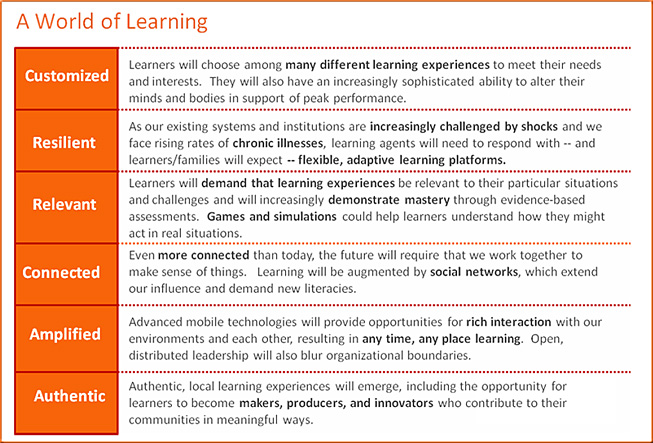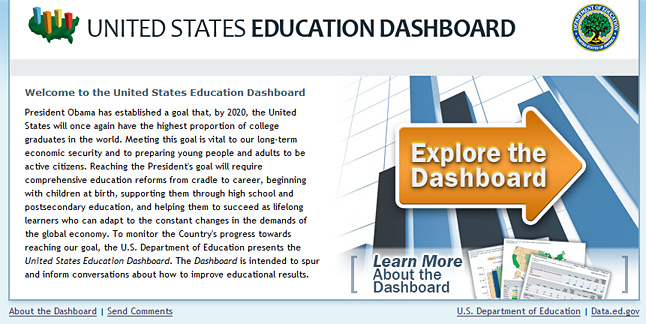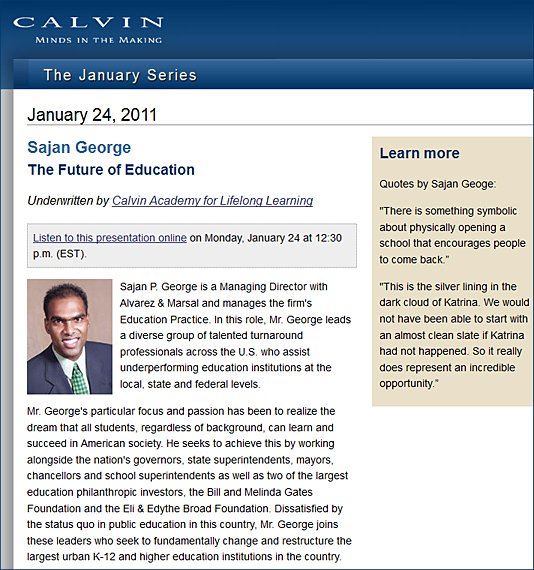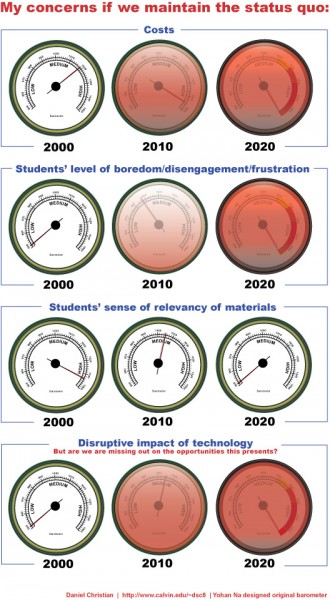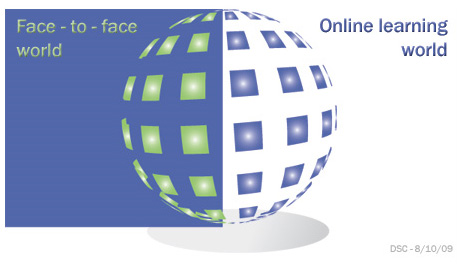Top Education Trends for 2011 — from foxbusiness.com by Emily Driscoll
As the student population increases and technology continues to change how we live our lives, the country’s higher education system must adapt quickly to keep up with the times.
According to a study by the National Center for Education Statistics, a record 19.1 million students entered two and four-year colleges and universities in fall 2010, an increase of about 3.8 million since fall of 2000.
From how professors lecture to specialized programs, here’s a look at the top education trends experts are forecasting for 2011.
London: Videos from the Learning Without Frontiers Festival now online
Learning Without Frontiers is a global platform for disruptive thinkers and practitioners from the education, digital media, technology and entertainment sectors who come together to explore how new disruptive technologies can drive radical efficiencies and improvements in learning whilst providing equality of access.
If you were unable to attend the recent LWF Festival of Learning & Technology in London we’re pleased to let you know that videos from the conference are now online for your personal or group viewing pleasure. There are a number of ways to view these videos so just choose the one you prefer.
To view, comment & join the discussions you can visit the video pages on the LWF site here
Amongst the alternatives, they are available on the following platforms:
iTunes (download to your PC, iPad or iPhone)*
And for users of Apple TV simply search for the Learning Without Frontiers channel under podcasts.
*You can also search for Learning Without Frontiers in the iTunes store – they are FREE!
Kauffman Labs for Enterprise Creation: The 2011 Education Ventures Founders
Following are profiles of the twenty-five aspiring entrepreneurs selected to participate in the inaugural class of the Kauffman Labs Education Ventures Program. These founders will be immersed in an intensive, hands-on program designed to catalyze the creation of high-growth companies to generate thousands of jobs with dramatic economic benefits in the education sector.
Is the Google-fication of education underway? — from cnnmoney.com by Scott Olster (emphasis below from DSC)
Among tablets and 3D TVs at CES, one-size-fits-all learning is facing a digital death knell.
Excerpt:
Similar to the way that Google collects data based on its users’ search patterns, Knewton collects data from every student that has taken one of its courses and uses it to improve its courses. Eduational content that achieves better student results will then be ranked higher in the system and be used more often. Ideally, the system becomes smarter and better over time.
“It’s like a giant recommendation engine on steroids,” says Ferreira.
The data that the company collects could potentially prove useful to educational researchers.
“We’re still trying to map out the way people learn. Collecting more data rather than looking at course grades is a welcome change,” says Miller.
Time for education innovation— from edReformer.com by Tom Vander Ark (emphasis DSC)
The growth of media and communications technology, the rise of a new generation of students and teachers equipped to use technology, and the shifts within schools and educational systems themselves create new fertile ground for education innovation. Taken all together these major changes can be understood as The Big Shifts in education.
The Big Shifts are comprised of the Technology Shift, the Global Shift, and the Learning Shift.
Google to build education software marketplace — from The Huffington Post
which links to:
Google pushes education software through app store — from BusinessWeek.com









